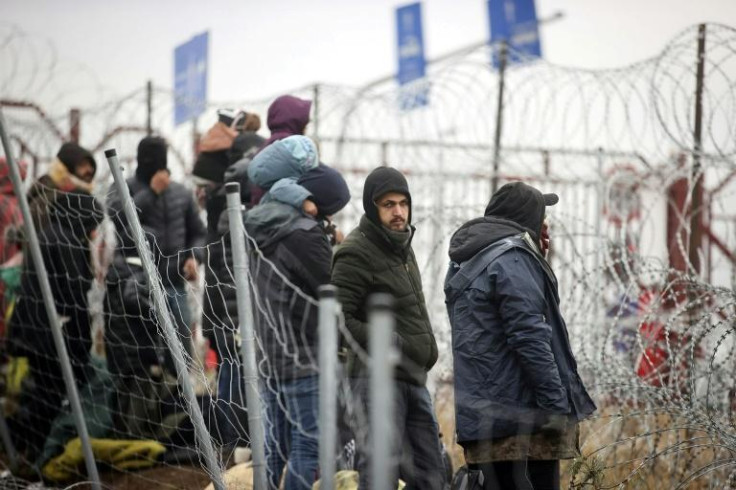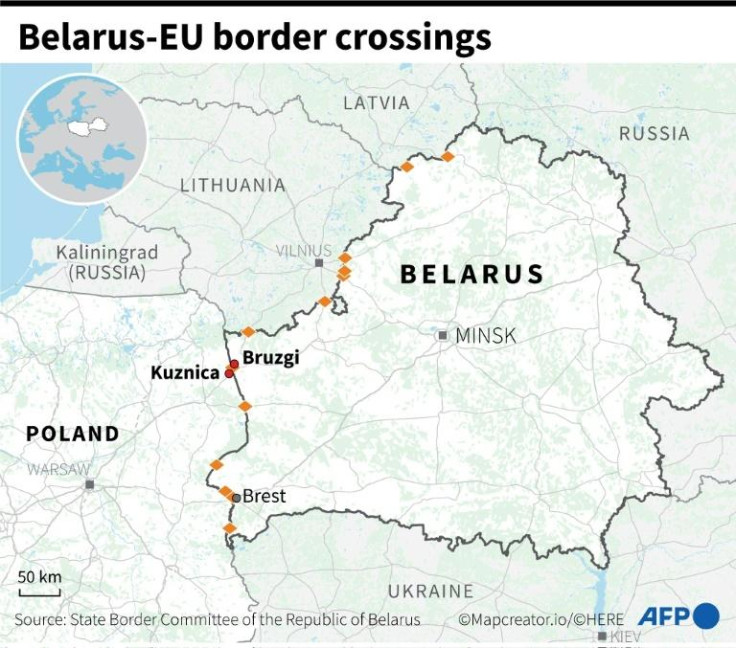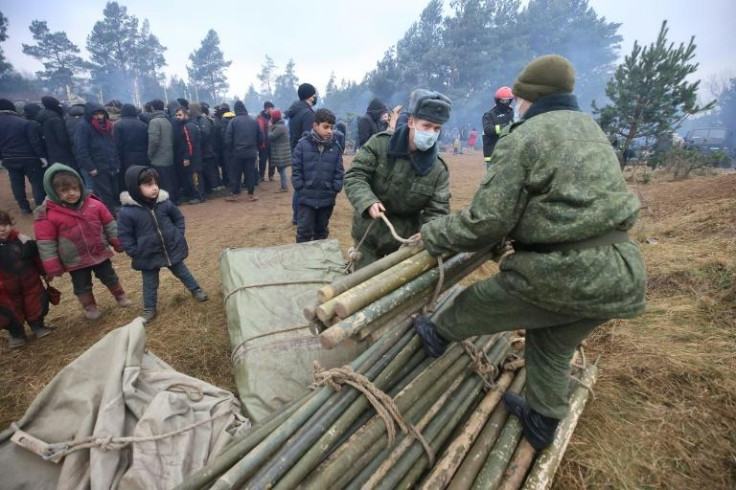EU readies Belarus sanctions over migrant crisis
Following pressure from EU diplomats, Turkey, one of the routes taken by migrants, has now banned Iraqis, Syrians and Yemenis from flying to Belarus.
The EU prepared to unveil new sanctions against Belarus following the first high-level contact between Brussels and Minsk since the migrant crisis on the EU's eastern border began.
After speaking with EU foreign policy chief Josep Borrell, Belarusian Foreign Minister Vladimir Makei said sanctions would be "counter-productive".
Borrell said he had spoken to Makei by phone about "the precarious humanitarian situation" at the Poland-Belarus border.
"The current situation is unacceptable and must stop. People should not be used as weapons," Borrell said in a tweet.
Thousands of migrants from the Middle East are camped out on the EU-Belarus border, creating a stand-off between the EU and US on one side and Belarus and its ally Russia on the other.
Western countries accuse Belarusian President Alexander Lukashenko's government of engineering the crisis by encouraging migrants to come to Belarus and then taking them to the border.

Lukashenko, who has been in power for nearly 30 years and has led a bloody crackdown against his opponents, denies the charges and blames the West.
Russian President Vladimir Putin has also rejected accusations of being involved in the crisis and has urged the EU to speak directly to Belarus.
Belarusian officials said some 2,000 migrants including pregnant women and children are living in the biggest camp near the village of Bruzgi.
Contacted by AFP by phone, Bakr, a 28-year-old Iraqi national, said he had been at the border for six days after travelling to Minsk from Baghdad via Dubai in a trip organised through a travel agency.

"We are all tired and sick," he said.
Sangar, a truck driver in his 30s from Iraqi Kurdistan, said he was also at the border with his wife and three children, including an eight-year-old boy who has had both legs amputated.
"I wish to go to any country that would accept taking my kids," he said.
Belarusian authorities have delivered aid including tents and heaters -- a move that could make the camp a semi-permanent presence on the EU border.
Poland has refused to allow the migrants in and has accused Belarus of preventing them from leaving.

Interior Minister Mariusz Kaminski on Saturday said a rumour was being spread among the migrants that Poland would allow them through on Monday and coaches would come from Germany to pick them up.
The government has sent a text message to all foreign mobile phones along the border saying this was "a total lie and nonsense".
The German foreign ministry also denied the rumour.
Despite the difficulties, groups of migrants regularly make it across the border but are often detained and many are sent back to Belarus.
Aid agencies say at least 10 migrants have died on the border so far and have warned of a humanitarian crisis unfolding as temperatures drop below freezing, urging a de-escalation.
EU foreign ministers are due to meet on Monday in Brussels to widen the sanctions on Belarus.
Borrell said ministers would approve sanctions on anyone taking part in migrant trafficking, including airlines, travel agencies and officials.
"Lukashenko got it wrong. He thought that by acting in this way he would twist our arm and force us to cancel the sanctions," he told the Journal du Dimanche, a French weekly.
Following pressure from EU diplomats, Turkey, one of the routes taken by migrants, has now banned Iraqis, Syrians and Yemenis from flying to Belarus.
Private Syrian carrier Cham Wings Airlines has also said it is halting flights to Minsk.
Polish Prime Minister Mateusz Morawiecki meanwhile called on NATO to take "concrete steps" to address the crisis.
"It is no longer enough just for us to express our concern publicly -- what is needed now are concrete steps and the involvement of the whole alliance," he told Poland's PAP news agency in an interview.
The US said Secretary of State Antony Blinken had spoken to his Polish counterpart Zbigniew Rau.
"The actions by the Lukashenko regime threaten security, sow division, and aim to distract from Russia's activities on the border with Ukraine," said State Department spokesman Ned Price.
Blinken has warned about Russian troop movements near Ukraine and warned Moscow against an invasion like its takeover of Crimea seven years ago.
Copyright AFP. All rights reserved.
This article is copyrighted by International Business Times, the business news leader





















